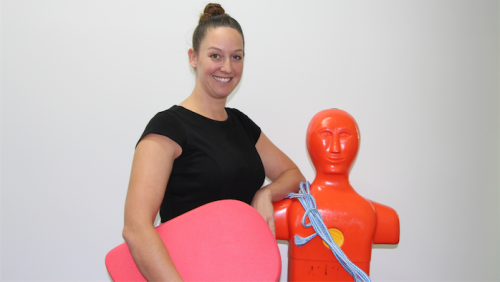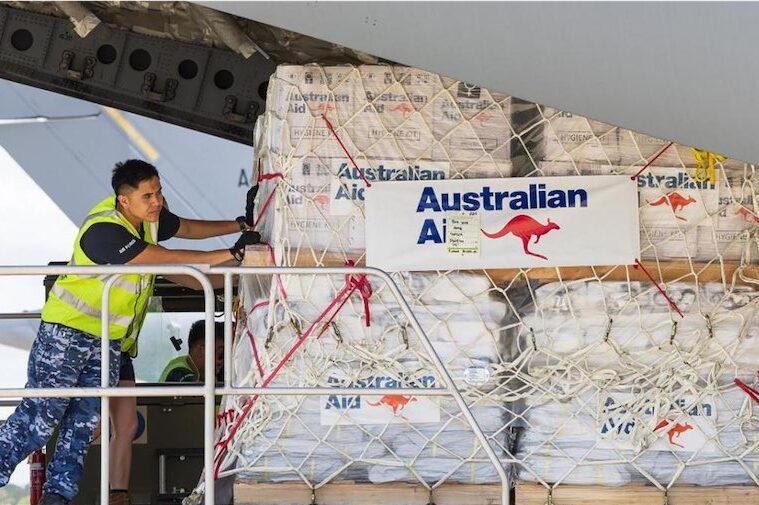
AFTER more than 13 years working for Royal Life Saving ACT, CEO Cherry Bailey has seen a worrying cultural change towards water safety.
“Families are far more time poor and lessons on learning to swim cost a lot more,” she says.
“All these barriers are stopping people from getting kids in the water.
“And a lot more kids these days are scared of deep water.”
But, Cherry says, even though people are less likely to learn water skills they’re still participating in water activities.
“There’s no reason to be dropping water safety on the priority list,” she says.
For parents with children who are unable to swim and for adults who are also lacking any swimming skills, Cherry urges them to get enrolled in a swimming program.
“We provide school-based programs but that’s a two-week program with 10 lessons and it’s not enough,” she says.
“There is research and data that shows the more exposure a child has to the water, the better off they’ll be.
“Personally, I would say once a week or once a fortnight is ideal but the general message is the more the better.”
Now the ACT has a Canberra Nippers, Cherry is hopeful more people will become educated in beach safety too, however, she says there’s probably still a lack of it here.
Last year rivers, creeks and streams saw the largest number of drownings nationally, according to the 2018 Royal Life Saving National Drowning Report.
In Canberra there were three drownings over the 2017/18 financial year, all of which were in local lakes, rivers and creeks.
“We have six major rivers, three big lakes and more and more community ponds popping up,” says Cherry.
“Even though we don’t have a beach, we’re still surrounded by water.
“Canberra has a very open storm water system as well.
“The ACT has its own set of risks despite being so central to so many different aquatic environments around us.”
The three drownings in Canberra over the last year were all men and nationally the ratio sits at around 80 per cent men and 20 per cent women.
“The contributing factors have been determined broadly as peer pressure (with males being more susceptible), a lower fear factor for men (the way they perceive danger differs to females), and men more likely to be combining alcohol and drugs with aquatic activities,” Cherry says.
She says alcohol is the number one contributing factor for drownings in rivers and lakes.
“One of the biggest messages is to avoid the combination of alcohol and/ or drugs and aquatic activities,” she says.
“Secondly, people need to be aware of changing environments.
“If they visited the river it might not be deep the next time they go there.”
Cherry’s third important tip is to never swim alone.
She also advises people to familiarise themselves with risks such as fast-flowing currents, water temperatures, slippery banks and emerging objects.
“And also wearing life jackets while boating, water skiing or fishing,” she says.
“Whilst we had three drownings last year in the ACT there might have been more [ACT residents drowning outside of Canberra],” she says.
“We have many ACT residents who travel to the south coast and other recreational areas outside of Canberra and those people don’t count towards the ACT.
Last year on the far south coast (from Batemans Bay to Tathra) 80 per cent of the drownings were people from the ACT.
“I encourage people to familiarise themselves with the areas that they’re going to be visiting,” she says.
“Talk to locals, find out where the rips are, swim between the flags.
“Don’t make assumptions that your skills and abilities will transfer.
“What a child is able to do in one environment might not be the same as another environment.”
Cherry is heading up to the Gold Coast over the holidays and says she’ll be swimming between the flags.
Who can be trusted?
In a world of spin and confusion, there’s never been a more important time to support independent journalism in Canberra.
If you trust our work online and want to enforce the power of independent voices, I invite you to make a small contribution.
Every dollar of support is invested back into our journalism to help keep citynews.com.au strong and free.
Thank you,
Ian Meikle, editor





Leave a Reply